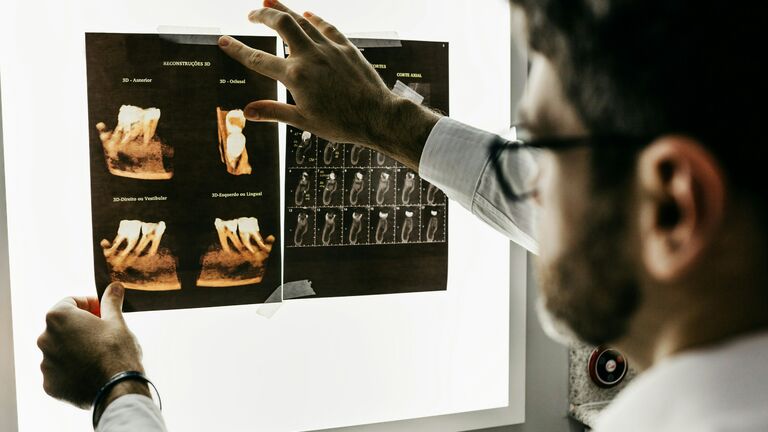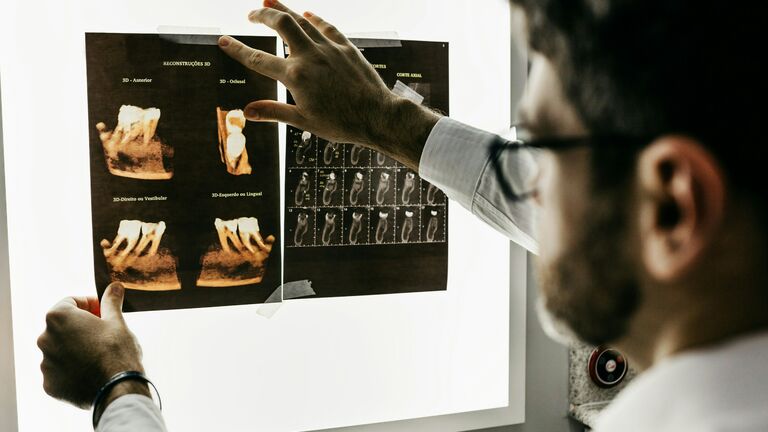
Signs of a Failed Dental Implant
Dental implant treatment is one of the only ways your dentist can permanently replace a missing tooth. The procedure works by placing a titanium screw into your jaw bone where it fuses with the bone and creates a solid foundation for a restoration, much like a natural tooth root.
The implant procedure is very complex, and the rate of failure when this treatment was first introduced was much higher. Thankfully, advances in treatment planning and the materials used means that implant failure is now much less likely. Most dentists report an implant success rate of around 90 to 95%.
Still, this means that between 1 in 10 and 1 in 20 patients will be disappointed by the outcome of their treatment. Early intervention at the first signs that something is amiss could help to save the implant. Here are the warning signs you need to look out for.

Discomfort or pain
Often the first sign that something is wrong will be pain around the implant site. If you notice the sudden onset of pain that is either constant or only occurs when you bite down on the tooth, it’s time to visit your dentist. It could be a surrounding tooth, or it could be a sign that you have an infection at the implant site.
Receding gums
Keep a close eye on the health of your gums around the implant. These may be tender in the days following your final implant procedure, but once this has passed, your gums should be healthy and pink. If you notice the gum is receding, or your tooth starts to look longer, this could be a sign of gum disease. It’s best to have this checked, as gum disease is a leading cause of peri-implantitis, which can lead to implant failure.

Movement of the implant
If the implant feels loose or like it is moving slightly, this could be cause for concern. You might notice this when you are chewing. Any strange sensations around the implant site are worth investigating with your dentist. If the implant has become loose, this could be a sign that you have an infection in the socket.
Inflammation or swelling
Swollen gums is a sign that something is amiss and should be checked by your dentist as soon as possible. This could be unrelated to your dental implant, but your overall oral health will have a huge impact on the health of your implant. Swollen gums suggests gum disease or infection, and both of these would be bad news for your implant.

Difficulty chewing or biting
If you find yourself favouring the opposite side of your mouth to your implant for chewing and biting, this could be a sign that something is wrong. You might be experiencing a low level of pain that you only notice when you chew, and chewing on the opposite side of your mouth will allow you to ignore this. Instead of ignoring the issue, speak to your dentist to find out why you are struggling to bite or chew.
When to get help
Your dentist will always be available to support you throughout your recovery. If you are concerned about your dental implants, book a checkup to find out if something is amiss. Remember that you need to keep your teeth in good health for the rest of your life, as issues like gum disease could lead to implant failure years down the line.
Having your implants for longer doesn’t mean that you will ever be out of the woods, and there is always the risk you could develop a condition that causes your implant to fail. Thankfully, there are methods to help you care for your oral health and your implant with ease.
Call us to make an appointment
We are accepting new patients and our team are here to help
Call us now
Teeth Whitening Offer £270
Teeth Whitening and Hygiene offer for £270 until end of April 2021.

Invisalign FREE teeth whitening
Invisalign FREE teeth whitening
Call us to make an appointment
We are accepting new patients and our team are here to help


